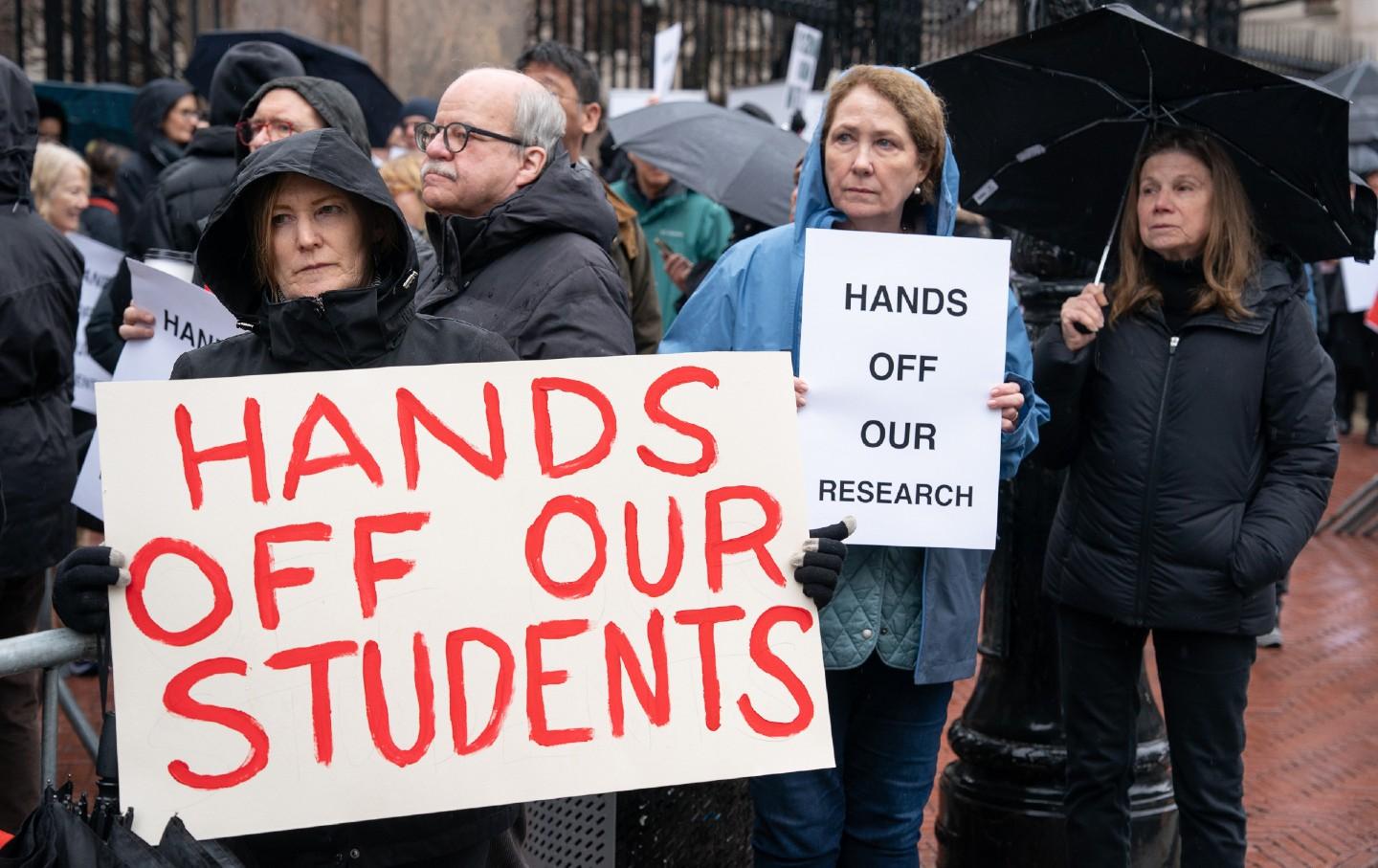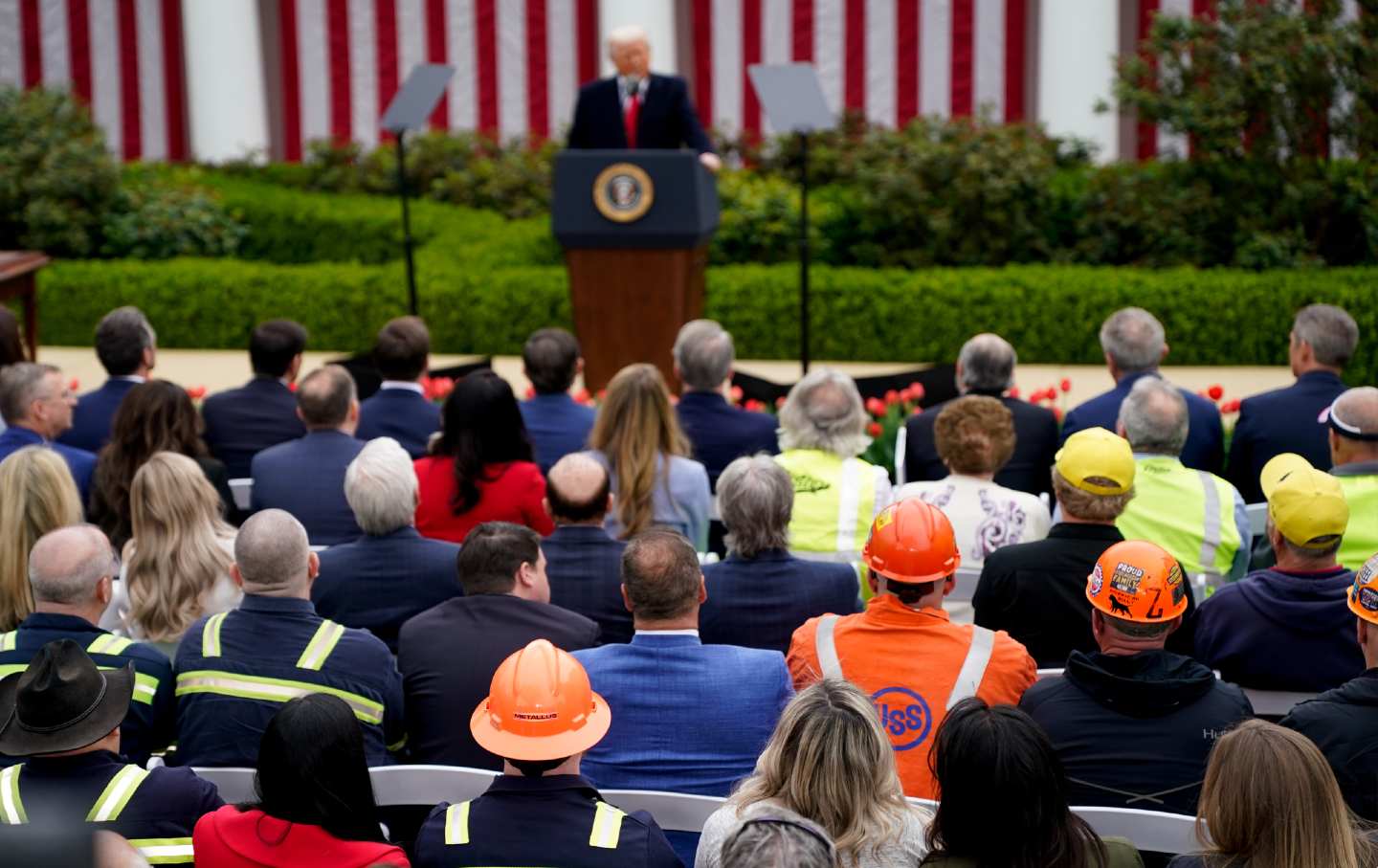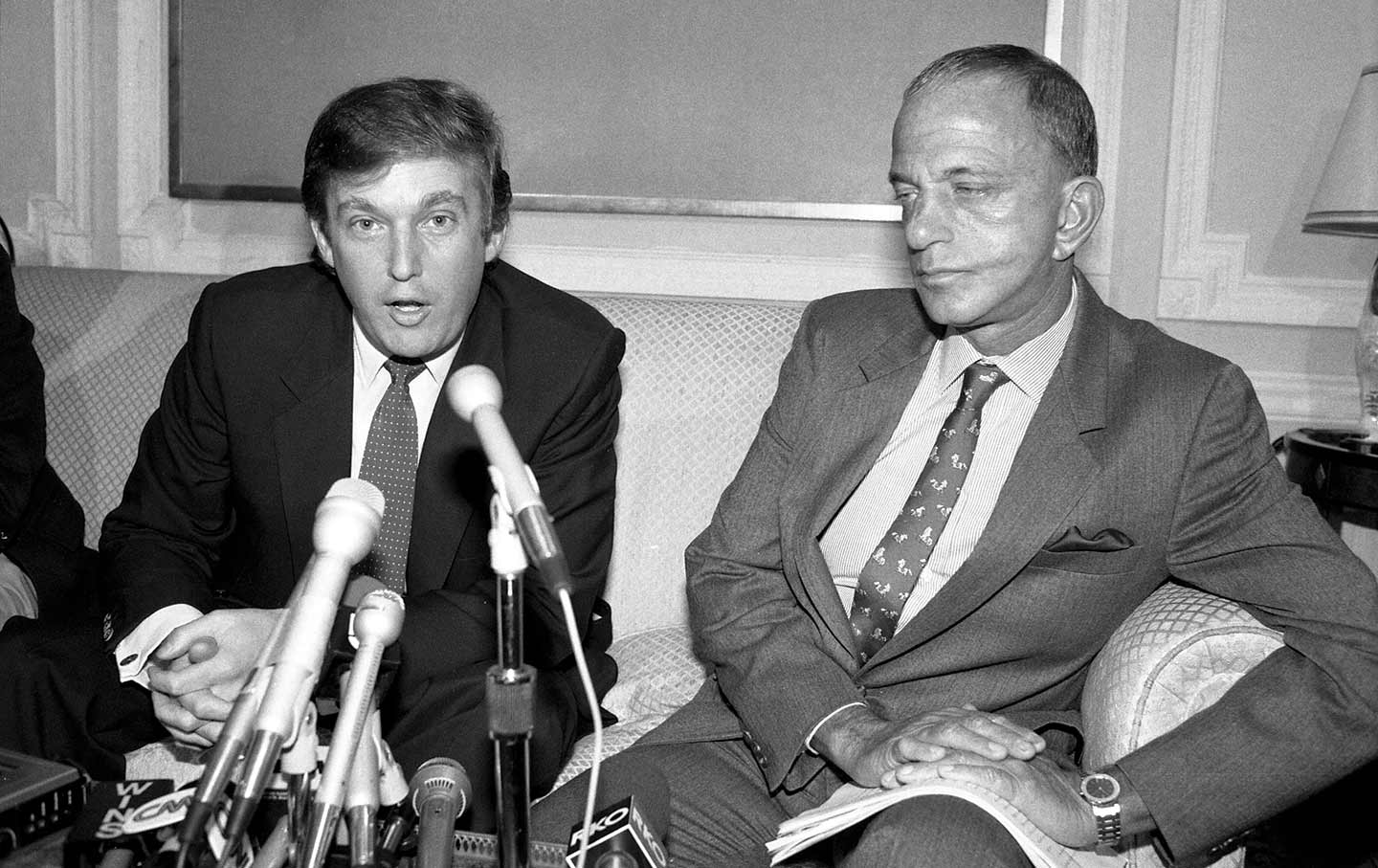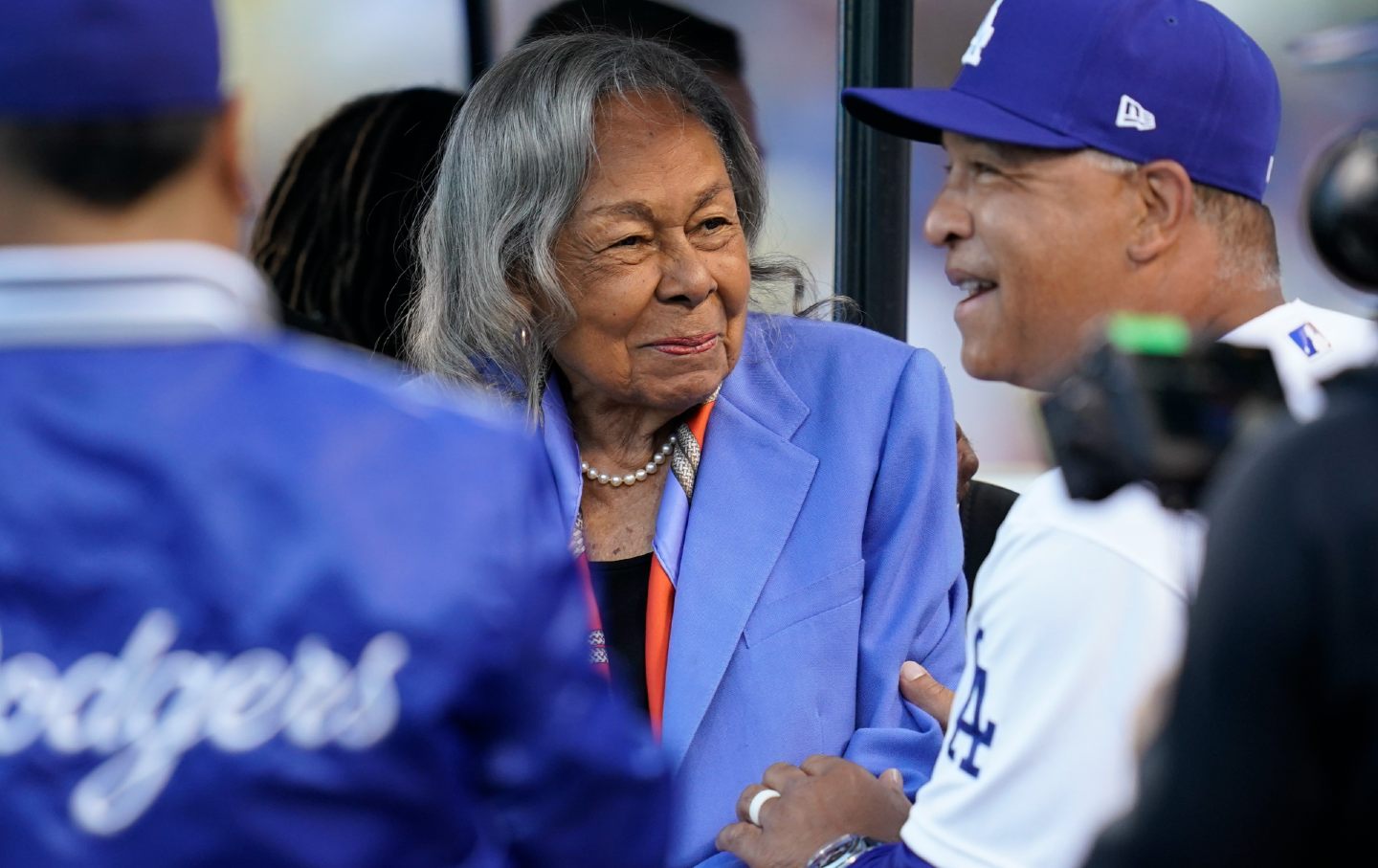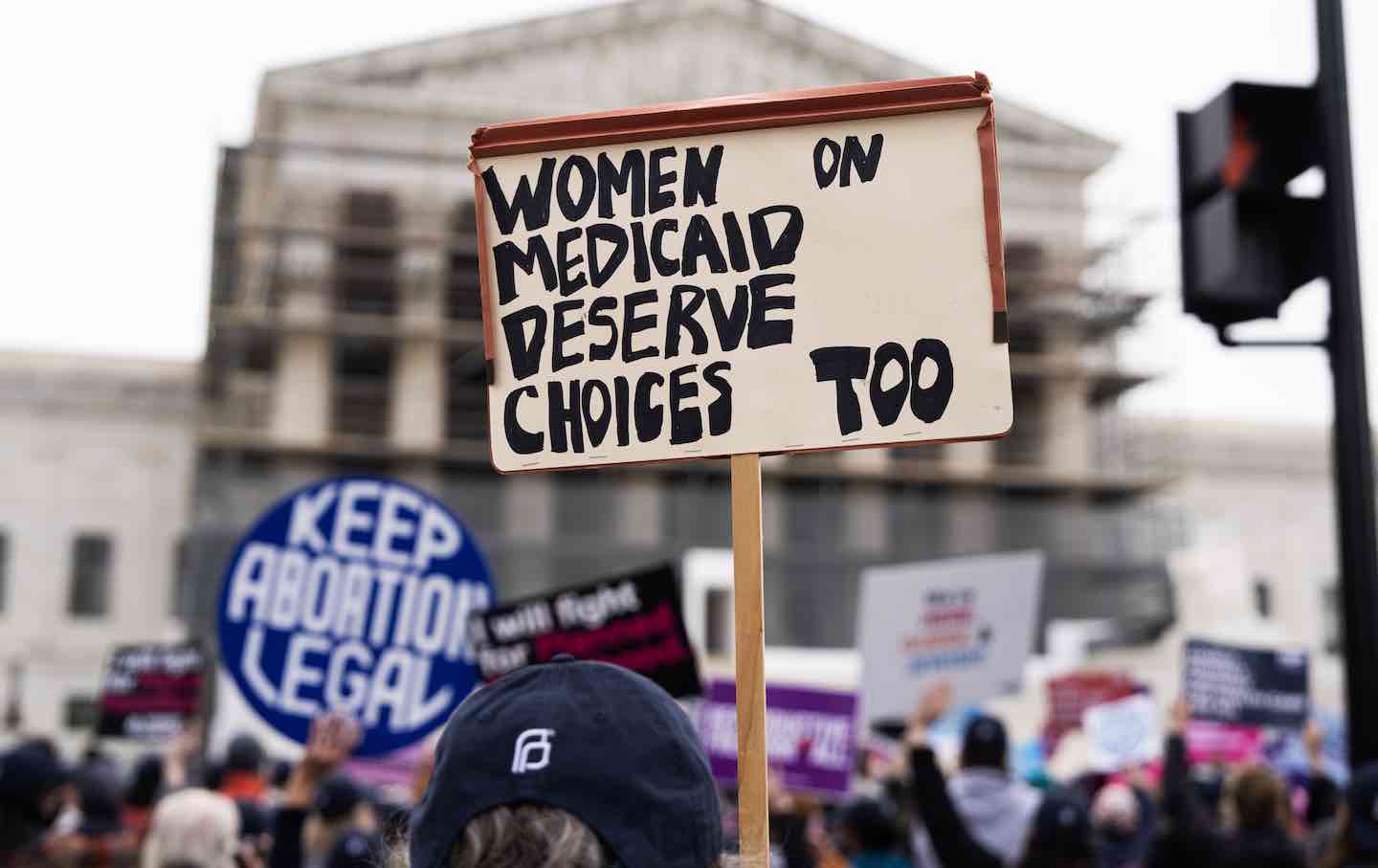The War Against Palestinians on Campus Keeps Getting More Absurd
It’s become so predictable: Palestinians try to gather at a university and all hell breaks loose.
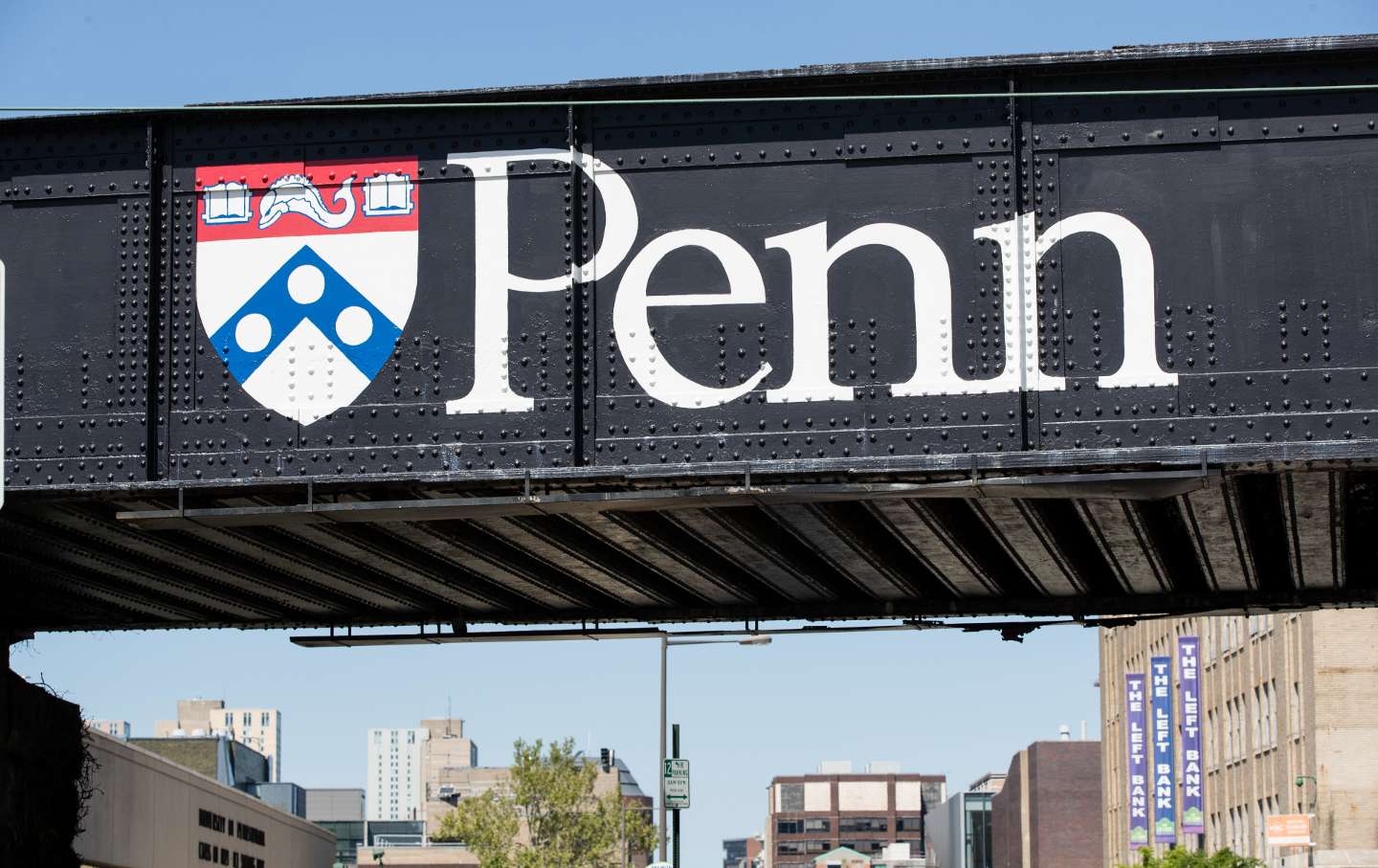
The 2023 Palestine Writes Literature Festival took place as scheduled on the campus of the University of Pennsylvania late last month. The festival—which bills itself as “the only North American literature festival dedicated to celebrating and promoting cultural productions of Palestinian writers and artists”—offers a valuable occasion to showcase work by and about Palestinians. It also provides Palestinians and Palestinian Americans a rare opportunity to celebrate their culture, history, and future as a people.
You could be forgiven, though, for imagining that Palestine Writes was something much more dramatic than a literary gathering, because its very existence seems to be a huge threat to certain people and institutions.
First, there was a concerted effort to stop the festival from taking place at all. This was accompanied by the kinds of shrill accusations, denunciations, condemnations, and crude forms of character assassination familiar to anyone who speaks up for Palestinian rights in the US academy.
Online headlines screamed that Penn would be hosting “a festival of antisemites.” All the predictable places published all the predictable warnings of “problematic content,” “troubling participants,” “blood libels,” “demonization of Israel,” and, above all, frantically repeated accusations of “anti-Semitism.” Someone even hired a van—emblazoned with lurid posters denouncing festival participants and the university president—to drive around the campus in anticipation of the anti-Semitic hatefest to come. Penn’s top administrators, including President Elizabeth Magill, issued their own statement denouncing much of the festival’s content, though they did not ban Palestine Writes from taking place.
This kind of frenzied rhetoric was not surprising. The organizations trying to suppress any large-scale articulation of Palestinian culture, history, and rights at our universities almost always adhere to a predetermined script irrespective of the specificities of the event they aim to target.
The sheer predictability is itself an act of intimidation. Host any such event on your campus, the implicit message goes, and you too can count on what happened at Penn: a storm of “controversy” and howls of “anti-Semitism,” along with the attendant bad press, waves of alumni letters, deep-pocketed donors complaining, and, invariably, some politician or another weighing in to add that little extra frisson of threat (in this case, New Jersey Representative Josh Gottheimer, who took it upon himself to denounce the festival in a letter sent to the university president).
However tediously formulaic it is, the actual content of these messages of warning and accusation is worth spending a little time puzzling over. It turns out that, contained within the outer shell of pumped-up and overheated vitriol, there’s an inner void, a yawning absence of substance.
To take a prime example, the American Jewish Committee denounced the Palestine Writes event for its allegedly “deeply problematic content, including speakers with well-established records of anti-Semitic rhetoric, along with programs and materials that present distorted and bigoted views of Israel and Zionism.”
The supposedly “anti-Semitic” speakers identified by the AJC included CUNY professor Marc Lamont Hill—who was infamously removed from CNN in 2018 because of his support for Palestine—and former Pink Floyd front man Roger Waters. As “evidence” of Waters’s anti-Semitism, the AJC laughably referred to a photo of him wearing a quasi-Nazi uniform in concert. The organization had perhaps (if we’re being generous) forgotten everything we’re supposed to have learned in high school about satire and parody—as well as the context of Waters’s specific performance, which is a denunciation of fascism, despotism, and oppression that Waters has been performing for nearly 45 years.
As for the festival’s “deeply problematic content,” the AJC offers two examples.
The first is the screening of the 2021 film Farha, a harrowing dramatization of one tiny episode in the 1948 Nakba—the ethnic cleansing of Palestine—from the viewpoint of an adolescent Palestinian girl. According to the AJC, the film includes “anti-Semitic tropes” and “blood libels” and “casts Jews as vicious, bloodthirsty, and cruel.” Farha, it adds, “is a distortive piece of fiction, yet it is often treated as evidence of extreme, unprovoked Israeli cruelty towards innocent Palestinians during Israel’s War of Independence.”
The second example of supposedly “deeply problematic content” cited by the AJC is Palestine Writes’ use of the academic discourse of settler colonialism to situate and understand the Zionist project in Palestine. This discourse, according to the AJC, is inappropriate because it refers to “ethnic cleansing by displacing and dispossessing a native or pre-existing population.” Referring to Israel as a settler-colonialist state, it insists, “is not only factually inaccurate, it is an anti-Semitic demonization of the State of Israel.”
The sheer perversity of such assessments actually helps us to understand the motivation of the plug-and-play “controversy” generators who are so quick to spring up in response to major events on Palestine at campuses across the United States, of which Palestine Writes is merely the most recent example.
What’s on display here, above all, is the culture of denial that has been characteristic of American Zionism—especially its more liberal formulations—for decades. The mainstream institutions of contemporary American Zionism have no way to reconcile themselves with the history and material circumstances of Zionism as it has actually been put into practice in Palestine from the early 20th century to the present day. As the AJC document demonstrates, there remains an utter inability—or refusal—to accept and to process even the most elementary outlines of what happened in Palestine in 1948 and what has been happening ever since. There is still a stonyhearted refusal to acknowledge that the Nakba took place, and a contrary insistence on wallowing in a childish and self-indulgent mash of equivocations, denials, mystifications, and self-soothing delusions of innocence, purity, and primal “return.” American Zionism is, in other words, a political movement fundamentally at odds with reality itself.
The AJC’s takes on Farha and the language of settler colonialism are textbook examples of this deep-rooted culture of denial. According to this position, not only was there no ethnic cleansing of Palestine in 1948 (the vast library of minutely documented scholarly and other literature on this notwithstanding); not only is Zionism, not a settler-colonial movement (despite the earliest Zionists’—Theodor Herzl, Vladimir Jabotinsky, Chaim Weizmann, among others—being quite explicit about the colonial nature of their project and its comprehensive alliance with and reliance on European colonialism at large); not only was the indigenous population of Palestine not deliberately displaced (despite the fact that the “transfer” of the pesky natives was explicitly discussed by European Zionists as early as the 1920s and continues to be retrospectively justified by Israeli historians such as Benny Morris in recent years)—not only were none of these things true, but to even suggest that they were is to engage in “blood libel,” “demonization,” “anti-Semitism” and all the rest of it.
Popular
“swipe left below to view more authors”Swipe →To hurl such emotionally supercharged slogans and epithets at documented historical records and scholarship—and the creative works based on them, such as Farha—is not to engage in argument; it is to make up for the lack of a viable counterargument with the institutional equivalent of a counter-pounding temper tantrum. Having long since lost all the academic arguments, contemporary Zionist institutions have gone to war against argument itself. Hence the drive to suppress Palestine Writes, or, really, any celebration of Palestinian culture and narrative.
The AJC is at liberty to embrace the many historical fictions it appears to cherish. But its statement makes it clear that it wants much more than the right to hold on to its own fantasies. It wants any attempt by Palestinians to tell the story of their homeland to be deemed an illegitimate, anti-Semitic attack. Only Israelis, it would seem, have a right to history; only one community must “never forget.”
This brings us to the second major element in play here: the deployment of the charge of “anti-Semitism” no longer as a merely emotional ploy to respond to criticism of the Zionist state (as it was used in the 1980s and 1990s) but rather as a weapon with potentially legal implications. I have written in other pieces in The Nation about the weaponization of “anti-Semitism,” especially the ongoing attempt to impose on universities the so-called International Holocaust Remembrance Alliance’s definition of anti-Semitism, which deliberately and mendaciously conflates criticism of the policies of the Israeli state with racism against the Jewish people. This redefinition is what allows organizations like the AJC to call any criticism of Israeli policy anti-Semitic.
If universities implemented this definition and imposed it on their students and faculty, the end result would be the classification of scholarly (and other) criticism of Israeli apartheid or human rights violations as hate speech—to be summarily banished from campuses across the country. That is why the AJC, the Anti-Defamation League, and similar organizations are so tirelessly pursuing this campaign: They wish to replace academic argument with a violently imposed silence. If you can’t win any arguments the old-fashioned way, the thinking seems to be, just eliminate the space for any argument at all.
The AJC denunciation of Palestine Writes is none too subtle on this point. In its feverish 1,000-word brief on the festival, the organization drops in the term “anti-Semitism” 17 times—once every 50 or 60 words. There are also six separate references and embedded links to the AJC’s relentless campaign to redefine anti-Semitism in order to banish criticism of Israeli policy from American university campuses.
To the University of Pennsylvania’s credit, Palestine Writes was allowed to take place on campus despite the attempt to subvert it. Unfortunately, however—and all too predictably—the university’s statement and its passive-aggressive “defense” of Palestine Writes ended up reinscribing the shrill accusations made against the event by the very organizations trying to shut it down—echoing the “deep concerns” about “several speakers who have a documented and troubling history of engaging in anti-Semitism.” The statement ended by asserting the value of free speech on campus even when that speech is “incompatible with our institutional values.” We can allow Palestinians to express themselves, in other words, because “our” values are ultimately superior to theirs.
It’s difficult to imagine a university administration responding to an attempt to shut down a festival held by any other cultural, religious, ethnic, or other kind of minority on its campus in quite these terms. As far as I know, no other minority faces the levels of surveillance, repression, interdiction, and cancellation as Palestinians on contemporary college campuses; certainly no other community must contend with an equivalent of the array of well-funded institutions—such as the dozens of constituents of the Israel on Campus Coalition—obsessively devoted to their silencing and repression.
Since 2014 alone, Palestine Legal has documented over 2,200 incidents involving attempted or actual suppression of Palestinian rights advocacy on campuses across the country—often with the collusion of university administrations. Just think about the institutions mobilized to suppress Palestine Writes—the AJC, the Zionist Organization of America, Hillel, the Anti-Defamation League (ADL), etc.—and the financial and organizational clout they can bring to bear, and ask yourself what would be the equivalent organizations to try to stop an event to celebrate Black culture or Latinx writers or queer fiction or transgender film at a major Ivy League university. Also ask yourself if an Ivy League university administration would respond to whatever miscellaneous cranks, racists, xenophobes, and bigots that did object to such an event in the terms that the Penn administration used to respond to the critics of Palestine Writes.
In the era of equity, diversity, and inclusion to which every contemporary university has devoted itself (and to which every university has directed vast bureaucratic investment), anti-Palestinian sentiment is the last form of racism that university administrations continue to embrace, even in those instances, such as at U Penn, where Palestinians are, however reluctantly, allowed a platform to speak.
For some years now, this has been the conundrum faced by Palestinians on American college campuses. The only thing worse than being shut down by well-organized outside agitators is being rescued by a university administration that can only summon the will to allow you to express yourself in terms that reiterate the superiority of its supposed values relative to yours.
And yet what are the values expressed by advocates of Palestinian rights? And what are the values expressed by the state project to which they are opposed and the array of institutions that give their unquestioning support to it? This is a confrontation between people demanding justice, equality, democracy, and freedom as opposed to a baleful state project not just demanding but actively institutionally imposing racism, inequality, dispossession, and colonial violence.
As the general contours of this confrontation become more visible to the public, the last tactic remaining for the advocates of Israeli apartheid is a massive, concerted effort to silence and crush what was once merely the marginalized advocacy of Palestinian rights that has now gone increasingly mainstream. However well-funded they may be, institutions like the AJC and the ADL are facing an uphill struggle in their effort to contain reality. And university administrations, for their part, would do well to heed recent history and take positive steps to uphold the principles of justice and democracy and the values of diversity, equity, and inclusion that they claim so volubly to represent—to which Palestinians are as entitled as any other community on campus.

